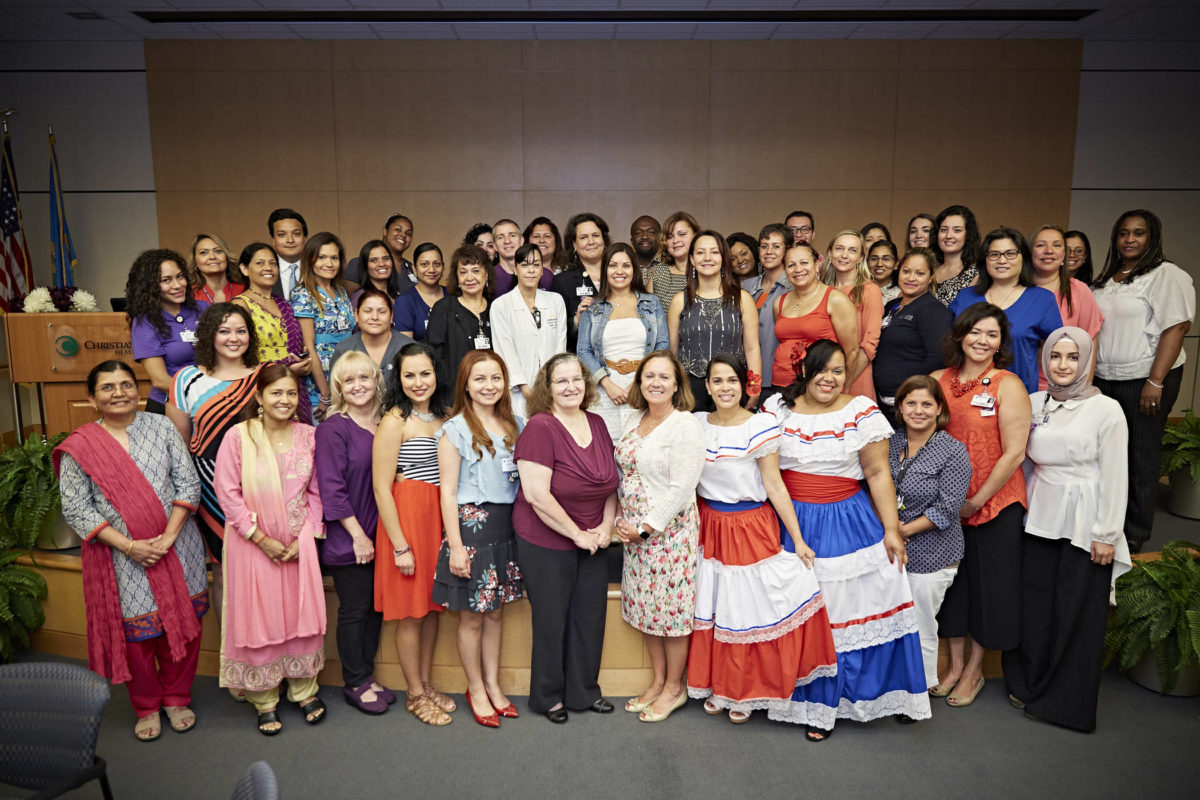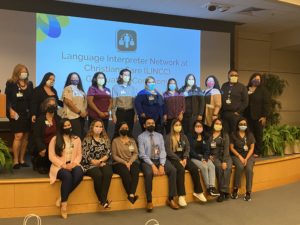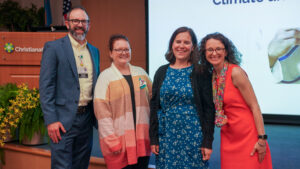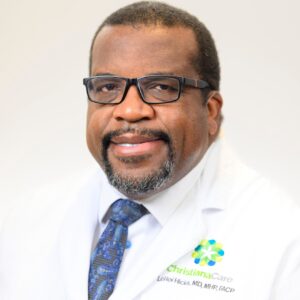For Zahide Cicek’s mother, a medical appointment was often a confusing experience.
“My mom doesn’t speak English, and every time she goes to the doctor or the Emergency Department, she needs an interpreter,” said Cicek, a medical assistant at the Helen F. Graham Cancer Center & Research Institute. “It’s hard for her to use the blue [telephonic interpreter] phone.”
A native of Turkey, Cicek now has added the purple interpreter’s tag to her employee badge as she serves other Turkish-speaking patients through the Language Interpreter Network at Christiana Care (LINCC), which provides qualified interpreters throughout Christiana Care in 21 different languages.
In a ceremony Aug. 18, Cicek and 32 other individuals graduated as professionally trained medical interpreters from the rigorous LINCC course, and 18 additional graduates were qualified as patient access liaisons, authorized to do non-medical interpreting.
“In many ways, the definition of respect is being able to sit with someone and communicate with them wholly,” said Christiana Care President and CEO Janice E. Nevin, M.D., MPH. “I can’t think of a more creative way to create access and to serve than this program.”
Dr. Nevin noted that the health system’s population of neighbors is becoming increasingly diverse, and qualified interpreters are a reflection of The Christiana Care Way.
“We see every day the positive change this makes in outcomes for our patients,” said Jacqueline Ortiz, MPhil, director, Cultural Competence/Language Services.
The graduates represented 13 languages. Bengali is among the fastest growing in demand. Cantonese and Turkish are being offered for the first time, expanding Christiana Care’s capacity to serve patients.
Claudia Angelica Reyes-Hull, MA, manager, Language Services, said interpreters work throughout the health system from labor and delivery to end-of-life care. She recalled an event at Christiana Care in which multiple patients arrived at the Emergency Department, victims of a trauma, and all the injured patients spoke Mandarin Chinese. “In that case we were able to get four interpreters to the Emergency Department during the first hour. Before LINCC, there would have been no way to do this so quickly.”
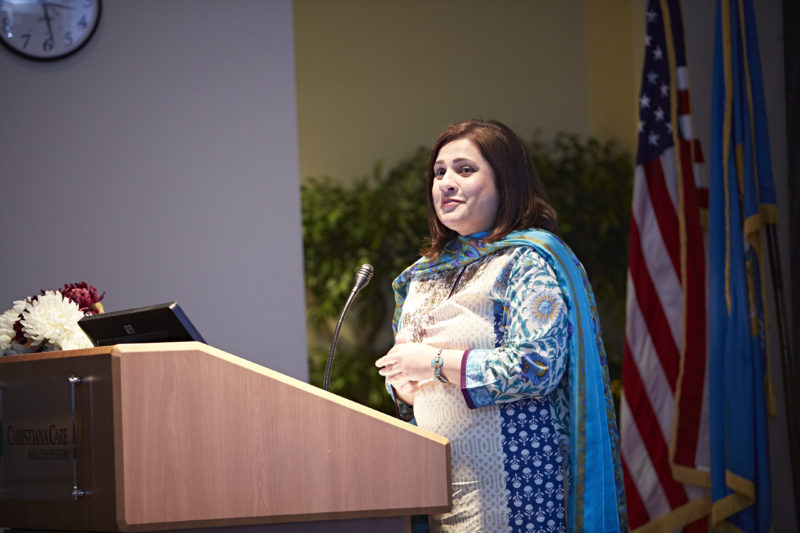
Bettina Tweardy Riveros, Esq., chief health equity officer, noted that approximately 85 different languages are represented in Delaware. The languages offered by the most recent graduates represent a large step forward in achieving health equity.
Via Parham, who was born in Mexico, is a scheduler for the Christiana Care Visiting Nurse Association.
“I wanted to be an interpreter because it gives me the ability to bridge that gap between the client and the provider,” Parham said. “We have many clients who speak Spanish.”
The graduates completed a challenging program presented over several months that included an oral assessment of speaking fluency, a 40-hour medical interpreting course, a written exam and an oral interpreter skills assessment.
Saira Mahmud, who was qualified to interpret Urdu in the first LINCC class in 2014, shared her first experience as an interpreter with the new graduates. She was called to Labor and Delivery to serve a patient who was having her first baby and experiencing complications. Her specialized training as a medical interpreter was immediately put into practice.
“I’m HR, not clinical,” Mahmud said. “But I felt my training kick in as I started to interpret.”
Physicians had determined the patient needed a C-section, but the patient did not want to have surgery. After Mahmud intervened to help the patient communicate with her providers about her concerns, she understood the need for the procedure and agreed. Mahmud accompanied the parents into the operating room, where she continued to interpret.
“Thankfully all went well, and I shared a beautiful moment with this couple, the birth of their baby boy,” she said. “I walked out of the hospital feeling overwhelmed, but there was not a doubt left in my mind that I had made the right decision to be a medical interpreter. It is a calling that keeps me engaged in my daytime job where I strive hard to find the best talent. My interpreter engagements afford me the opportunity to see these very talented people at work. They serve as a profound reminder that both my jobs — HR and interpreter — are equally important, and in actuality are intertwined and bound by one mission — to serve.”
For Mahmud, that calling to serve is embodied in the purple tag on her ID badge that identifies her as an interpreter.
“That purple tag identifies you as a culturally competent patient advocate,” she told the graduates. “It identifies you as a culturally competent medical interpreter who truly makes a difference. It also identifies you as someone who provides an unspoken comfort to the patient and assistance to the provider.
“This purple tag is a true testament that you possess an outstanding skill — your native language. Today, this skill has awarded you with an opportunity to make a direct impact to the community we serve and to be exceptional as a Christiana Care employee. Your purple tag is your cultural heritage proudly on display.”
As licensed trainers for The Community Interpreter training course, Christiana Care opened the course to individuals employed at other institutions who are working to become medical interpreters. Seven individuals from the community who speak French, Portuguese, Spanish and Gujarati participated in the course, adding to the availability of interpreters throughout Delaware.
Languages available through LINCC include Spanish, Turkish, Hindi, Gujarati, Russian, Mandarin, Cantonese, Bengali, American Sign Language (ASL), Haitian Creole, French, Vietnamese, Korean, Malayalam, Yoruba, Twi, Swahili, Tagalog, Italian, Arabic and Portuguese.
